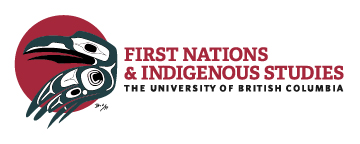Some of the responses we’ve heard most frequently are:
- “I don’t know enough about Aboriginal people to answer questions that might come up.”
- “I am not Aboriginal, so I would have trouble speaking for Aboriginal people.”
- “I do not have Aboriginal people or deal with Aboriginal issues in my class/work place, so this material is not really relevant.”
It may be useful to comment on these responses up front at meetings or workshops in order to alleviate the discomfort that participants may experience bringing them up themselves. It may also be more time efficient, given your time frame, to acknowledge these concerns and provide some ways of thinking about the assumptions that operate behind them.
1. “I don’t know enough about Aboriginal people to answer questions that might come up.”
Participants often cite their lack of knowledge of Aboriginal issues as a source of anxiety during classroom discussions. The key point for your participants to recognize is that they do not need to be “experts” in Aboriginal histories and cultures to have an effective classroom discussion. The situations that students discussed in their interviews had little to do with “facts” about Aboriginal peoples and histories, and more to do with how difficult situations occur and how they are dealt with – or not dealt with – by instructors. This point may help participants feel that they can speak through their discomfort, rather than remain silent because of it.
2. “I am not Aboriginal so I would have trouble speaking for Aboriginal people.”
It’s not the instructor’s responsibility to speak for Aboriginal people. While it is important to recognize that facilitators are in a position of authority in the classroom, it might be more useful to think of facilitators’ roles as being to help students think through their comments, map out their assumptions, and develop more nuanced and less problematic ways of thinking and speaking about Aboriginal issues.
A related response that non-Aboriginal people have in discussions of Aboriginal subject matter is that because they are not Aboriginal, they have nothing to contribute to the discussion, or that they don’t know how to enter the discussion. As a facilitator, you may want to make a statement at the beginning of your meeting that anticipates this concern. Such a response might be most effective if it includes the following points:
The significance of acknowledging social position and that their concerns about speaking reflect this;
- This doesn’t mean they don’t have anything to contribute to the discussion;
- Their understanding of the issues and white privilege contributes to the discussion;
- The ways in which you talk about this material matters;
- Acknowledging their social positions identifies the experience that they bring to the discussion, and that they don’t presume to have knowledge of the experiences of others who are also a part of the conversation.
3. “I do not have Aboriginal people or deal with Aboriginal issues in my class/work place, so this material is not really relevant.”
It is worth questioning the underlying assumption of this kind of statement, since classroom discussions that include Aboriginal content do not solely take place in programs or courses designated as having an Aboriginal focus. A course on postcolonial critical theory, for instance, may include discussions of the history of colonization in North America and its impacts on Aboriginal peoples. A course examining social contexts of health issues might address the social dimensions of health issues affecting Aboriginal people.
The assumption of this response also neglects to recognize that Aboriginal students are represented in faculties and disciplines across the university, not solely in Aboriginal programs. Aboriginal students have a wide range of interests and pursuits at the postsecondary level, and should be able to expect sensitive and respectful discussions around Aboriginal content in any area of study.
Faculty and staff are also affected by the quality of discussion around Aboriginal issues at the university. If a prevailing attitude within a unit, department, program, or other area is dismissive of Aboriginal or other cultural sensitivity issues, or does not engage with these issues as a part of its operations or policies, it signals to those who work in and with that unit that there is potential hostility to these issues. These dynamics can create alienating work environments and relationships for staff, faculty, and students. It’s worth considering how this kind of work environment affects these individuals’ abilities to function in their work places, in the same way we have considered how the classroom environment affects students’ abilities to function in their classes. If a work environment is alienating for those working there, and their ability to function effectively in their positions is impeded, it reduces their likelihood to succeed at their position and by extension affects their career mobility and opportunities.
Another situation arising from a unit’s lack of engagement with cultural sensitivity issues is frequently that equity issues are delegated to staff and other personnel in roles that provide “specialized” support services, such as Aboriginal student services and equity and diversity units. It’s common for people in these roles to have the responsibility placed on them to respond to incidents and issues of cultural sensitivity, on top of their regular duties. This can burden these individuals with undue stress, particularly where they are already working in demanding areas, and create a situation where they burn out very quickly. It’s important to recognize that a lack of awareness of Aboriginal issues has far-reaching implications to the university environment as a whole, and that acknowledging this reality is a step towards finding ways of addressing these issues within and across units at UBC.

